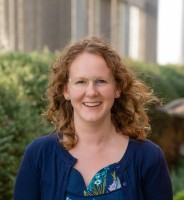Sustainable Living & City
Renewable Energy
Urban Planning
Green Building & Architecture
Resilient Infrastructure & Safety
Energy Storage & Smart Grids
Post-Doctoral Fellowships
Belgium
2018.09.30
Towards zero-energy cities : a numerical tool to optimize retrofitting of existing urban blocks
Expanding the scope of existing zero-energy optimization softwares at the neighborhood level
Research-wise, an appreciated body of studies have already been conducted on zero-energy building, using similar mathematical optimization methods as the one that will be developed here, "but always at the individual building level, very little at the urban block level", specifies Dr. Nematchoua. "In this research, numerical optimization of buildings will be extended to include energy aspects related to mobility and renewable energies, in order to take into account their potential interactions. Furthermore, the study will also take into account the environmental impacts of these zero-energy solutions (including the impacts on the health of inhabitants), as well as their overall costs. Several side factors will also be investigated, like modal change from individual cars to green transportation modes (ie: bicycles, walking, etc), future high-tech transportation modes (for example shared autonomous cars), as well as the influence of the urban density on the most suitable local renewable energy sources. The ultimate objective is to produce a software that will be able to select the most sustainable solutions over the entire life cycle of buildings. An other important point to notice about the present project is its particular attention to carbon emissions. Indeed, reducing energy consumption does not necessarily mean that carbon emissions will decrease. "Zero-energy and carbon neutral are two different concepts", confirms the investigator. "However, it is possible to combine both, by paying particular attention to building materials, for instance, and transportation, of course. We aim to reduce carbon emissions up to 40%".
By 2050, more than 75% of the population will live in cities. Better understanding of the interactions and energy exchanges occurring in the urban environment, between buildings, transports, and local renewable energy sources, is thus an absolutely crucial research step on the road to global sustainability. By aiming to "help stakeholders to identify new opportunities regarding the implementation of zero-energy policies and to provide community planners, traffic engineers, buildings engineers and designers with a tool, information and data aiding in the design and implementation of zero-energy renovated urban blocks", the ZEUS project will make a considerable contribution towards this goal.

Modeste Kameni
NEMATCHOUA
Institution
Université de Liège
Country
Belgium
Nationality
Cameroonian
Related articles
Sustainable Living & City
Climate Change
Climate Adaptation & Resilience
Urban Planning
Resilient Infrastructure & Safety
Environmental Justice
Post-Doctoral Fellowship
Australia
2023.06.20
Indicators for Climate Resilient City Planning
Expected start date:June-2023 Cities contribute enormously to global greenhouse emissions and are key drivers of climate change. By the same... Read more

Melanie
LOWE

